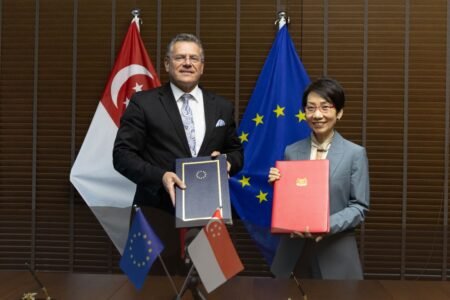(BRUSSELS) – While Europe’s national education systems are becoming more inclusive and effective, a new report also confirms that educational attainment still largely depends on their socio-economic backgrounds.
“Inequality still deprives too many Europeans of the chance to make the most of their lives,” said Education Commissioner Tibor Navracsics, presenting the 2017 edition of the Education and Training Monitor: “It is also a threat to social cohesion, long-term economic growth and prosperity.
“And too often, our education systems perpetuate inequality when they do not cater for people from poorer backgrounds; when parents’ social status determines educational achievements and carries over poverty and diminished opportunities on the job market from one generation to the next. We have to do more to overcome these inequalities. Education systems have a special role to play in building a fairer society by offering equal chances to everybody,” Mr Navracsics added.
The latest edition of the Monitor shows that while EU Member States are making progress towards most of the key EU targets in reforming and modernising education, more efforts are needed to achieve equity in education.
Educational attainment is an important factor in determining social outcomes. People with only basic education are almost three times more likely to live in poverty or social exclusion than those with tertiary education.
The Monitor’s most recent data also show that in 2016, only 44% of young people aged 18-24 who had finished school at lower secondary level were employed. In the general population aged between 15 and 64, the unemployment rate is also much higher for those with only basic education than for those with tertiary education (16.6% vs. 5.1%). At the same time, socio-economic status determines how well pupils do: as many as 33.8% of pupils from the most disadvantaged socio-economic backgrounds are low achievers, compared to only 7.6% of their most privileged peers.
One of the EU’s targets for 2020 is to reduce the share of 15-year-old pupils who underachieve in basic reading, maths and science to 15%. However, as a whole, the EU is actually moving further away from this objective, particularly in science, where the number of low achievers increased from 16% in 2012 to 20.6% in 2015.
People born outside the EU are particularly vulnerable. This group is often exposed to multiple risks and disadvantages, such as having poor or low skilled parents, not speaking the local language at home, having access to fewer cultural resources and suffering from isolation and poor social networks in the country of immigration. Young people with a migrant background are at a greater risk of performing badly at school and leaving school prematurely. In 2016, as many as 33.9% of people aged 30-34 living in the EU but born outside it were low skilled (having achieved lower secondary education or below), compared to only 14.8% of their peers born in the EU.
Across the EU, investment in education has recovered from the financial crisis and increased slightly (1% year-on-year in real terms). About two-thirds of Member States recorded a rise. Four countries increased investment by more than 5%.
The Commission’s Education and Training Monitor 2017 is the sixth edition of this annual report that shows how the EU’s education and training systems are evolving by bringing together a wide array of evidence. It measures the EU’s progress on the six Education and Training 2020 targets: (1) The share of early leavers (aged 18-24) from education and training should be less than 10%, (2) the share of 30 to 34 year-olds with tertiary educational attainment should be at least 40%, (3) at least 95% of children between the age of four and the age for starting primary education should participate in education, (4) the share of 15 year-olds with underachievement in reading, mathematics and science should be less than 15%, (5) 82% of recent graduates from upper secondary to tertiary education (aged 20-34) who are no longer in education or training should be in employment, (6) at least 15% of adults (aged 25-64) should participate in formal or non-formal learning.








